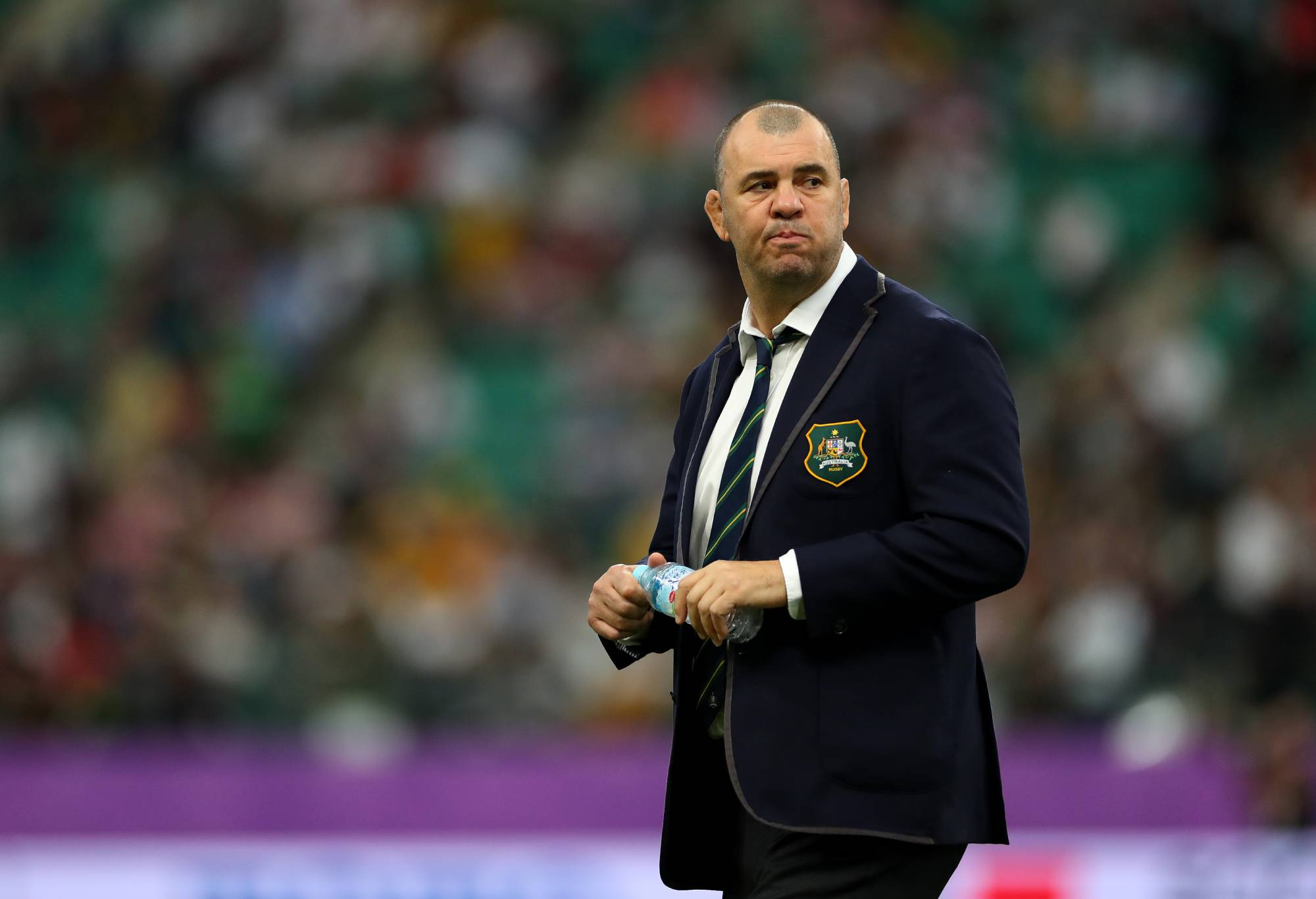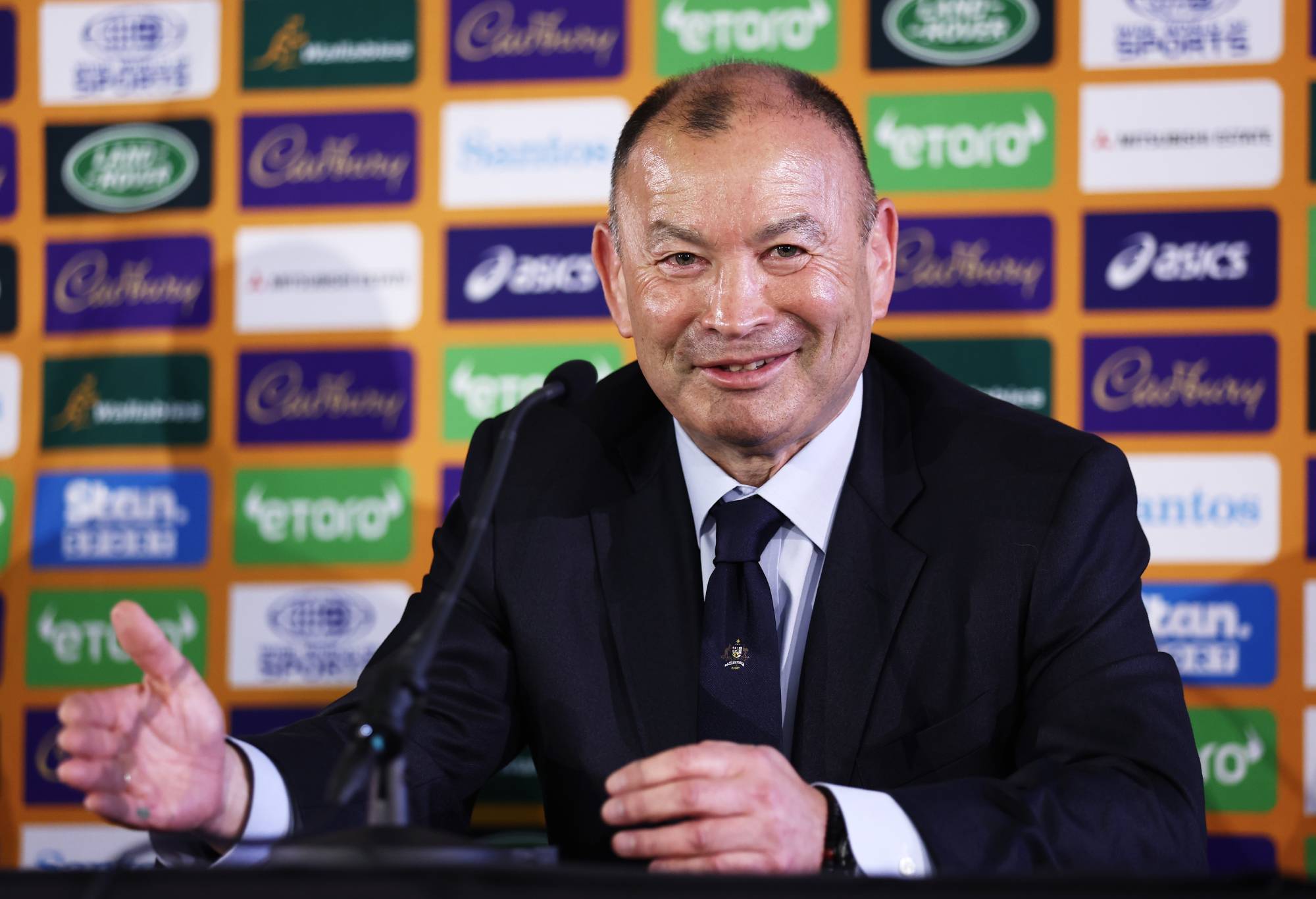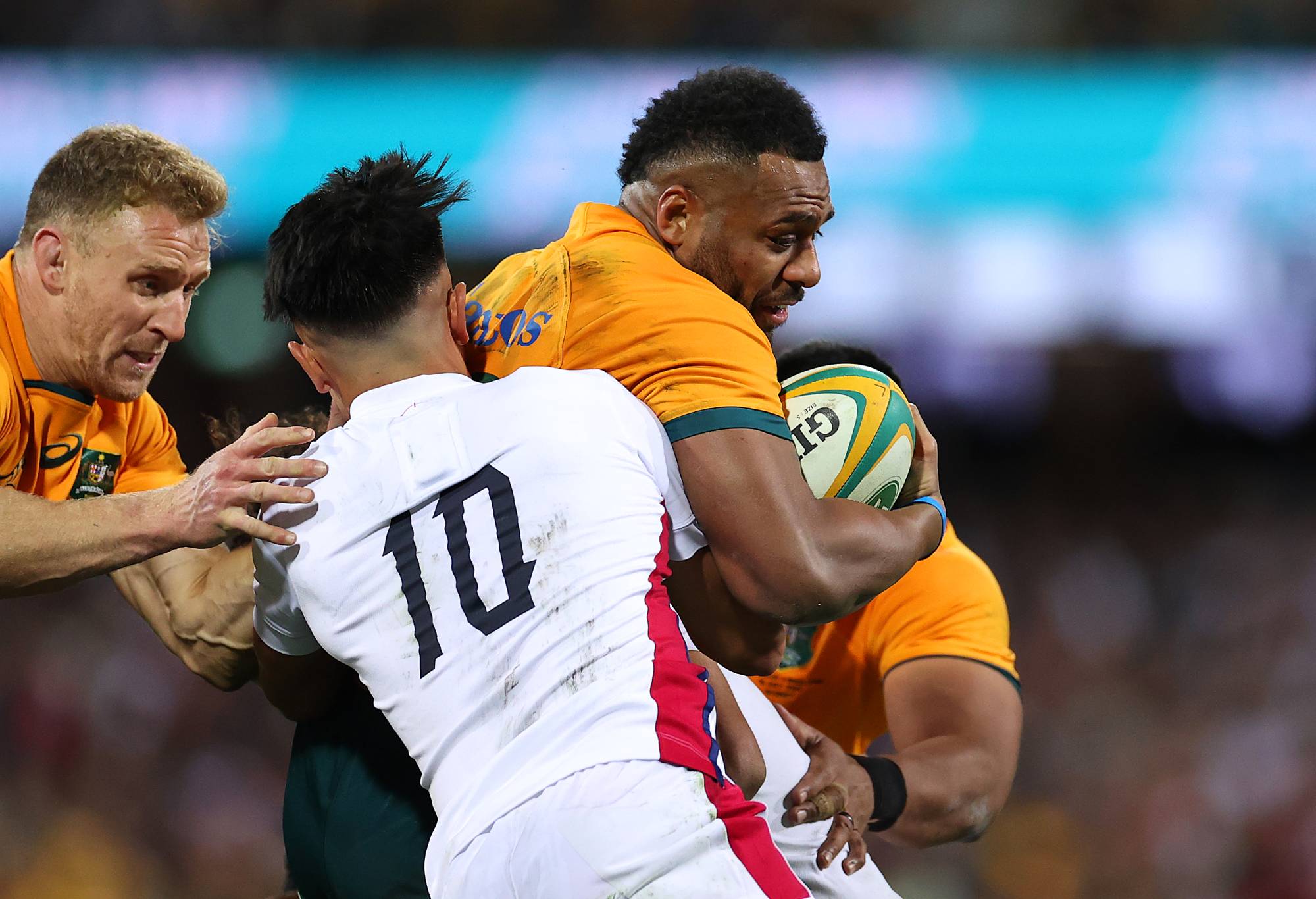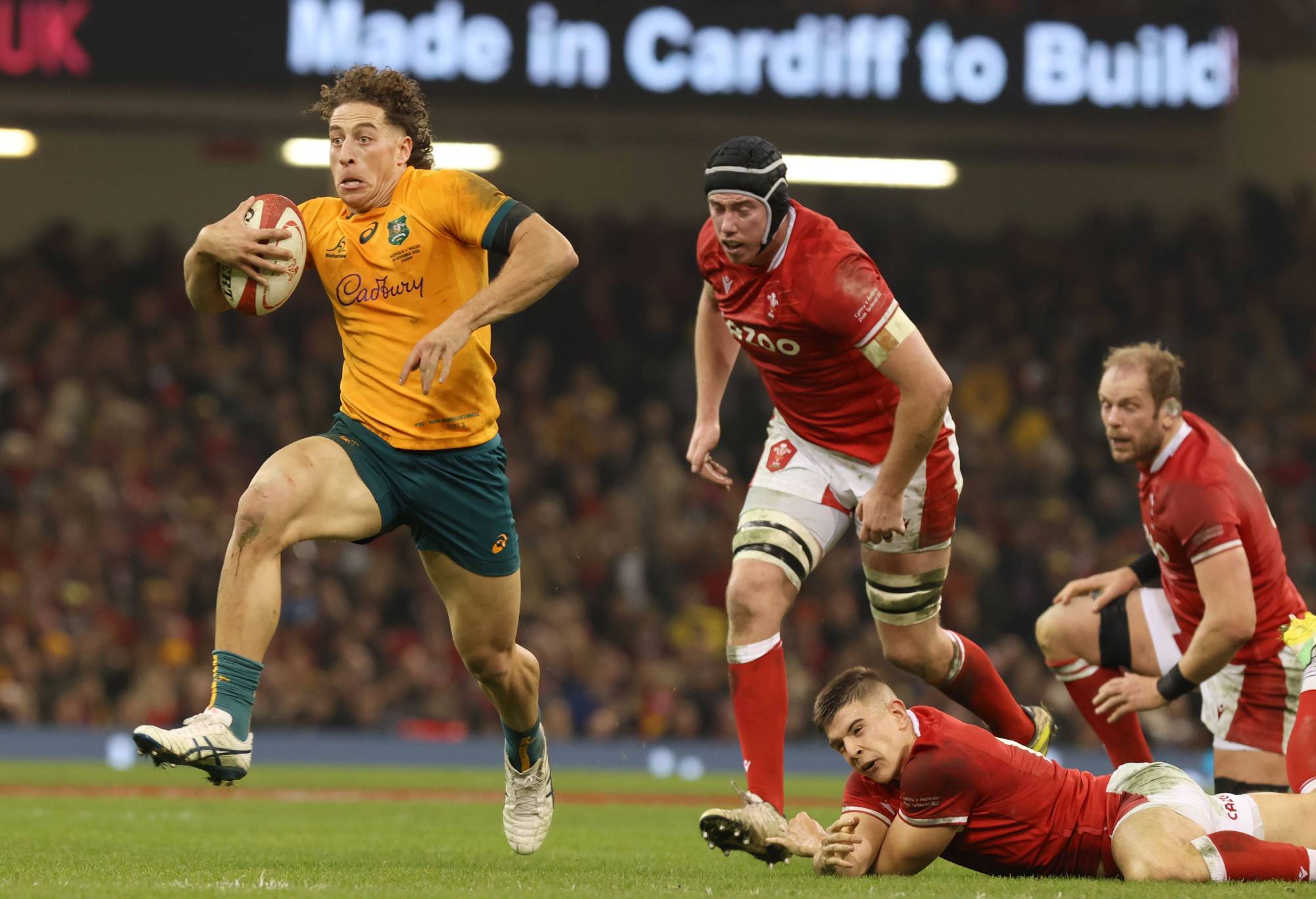Eddie Jones might have been schooled in Randwick’s running rugby methods. But if you think he’ll bring back that approach to the Wallabies for his second iteration as Australian coach, think again.
Despite being the star guest at the 50th anniversary of the 1973 Australian Schoolboys team in Sydney on Friday, Jones gave those longing for a return to the golden days when the Ella brothers were the talk of the town a sobering reality check.
While Ireland, built around the Leinster province, play a possession-based game and often kick around the halfway line to get the ball back, the vast majority of international rugby has turned into a kick-heavy, counterattacking game built on power and explosiveness.

Eddie Jones’ English side beat Michael Cheika’s Wallabies who attempted to play a running-style game during the 2019 World Cup. Photo: Dan Mullan/Getty Images
It’s why when Michael Cheika sought to reinvent the wheel during the 2019 World Cup year it backfired, as he encouraged his Wallabies to run the ball from everywhere.
It resulted in the Wallabies suffering their biggest World Cup defeat, as Cheika’s side were dumped out at the quarter-finals by Jones’ then-English team.
Jones, who has given very little away around his selection and captaincy options since sensationally returning in mid-January, gave the strongest indication yet of how his side would look to play when they hastily regroup in late June ahead of their July 9 opener in Pretoria.

Wallabies coach Eddie Jones says rugby has entered the “power game” cycle. Photo: Matt King/Getty Images
Jones will have just four main training sessions before their opener against the Springboks and only eight before they play the All Blacks on July 29 at the MCG to get his game plan in order.
But rather than trying to win the hearts and minds of playing open and expansive rugby, he wants to bring a win-at-all-costs mentality back to the Wallabies.
“There’ll be a hundred thousand people there, right, and we kick the ball 70 times and we beat New Zealand, everybody is going to be happy,” Jones told a packed Australian Schoolboys audience at the Four Seasons Hotel in Sydney.
“(If) we kick the ball 10 times and we get beaten 40-10, they’re going to walk out kicking stones.
“So we’ve got to be junkies for winning, not junkies for possession. Possession rugby is dead. It’s dead for the moment and it’s probably going to be dead for a long period of time.
“The game’s about being fast now. You’ve got 75 per cent of tries being scored in three phases – 75 per cent.
“So why would you keep the ball for 10 phases.
“That’s just stupid to even think like that anymore, and unfortunately there’s that thinking still in rugby.”

Samu Kerevi attempts to run over Marcus Smith last July. Photo: Cameron Spencer/Getty Images
Jones pointed to the changing cultural landscape in Australian rugby, which has been heavily influenced by the rising influence of Polynesian players in the game.
He said it would be naïve to play a game that doesn’t cater to the strengths of Polynesian players.
“You look to the playing population of Australian rugby now: 60 per cent is Pasifika, 40 per cent’s white,” he said.
“So that means the 60 per cent of Pasifika, we’ve got to play power rugby. Like, we can’t play a long-phase, hold-the-ball (rugby) with different sorts of gene pools.
“We’ve got to play smart, we’ve got to play to what the laws are now and we’ve got to play to our strengths, which is about being smart, being really fast and aggressive on the first couple of phases and then be able to kick constructively to get the ball back.
“We don’t want to kick to them. We want to kick the ball back.”

Mark Nawaqanitawase’s power, aerial prowess and ability to beat the first man is likely to impress Eddie Jones. Photo: Huw Fairclough/Getty Images
With the likes of Mark Nawaqanitawase, Jordan Petaia, Samu Kerevi, Marika Koroibete and Suliasi Vunivalu in the Wallabies squad, Jones said the men wearing gold could be the most powerful backline in world rugby.
“You just have a look at the Australian backline that we could pick, we’ve probably got the most powerful backline in the world,” he said.
“So we’ve got to be able to use that. But we can’t use that by keeping the ball for 10 or 12 phases because they don’t have the petrol in the tank.
“You know when your car is going on empty, you’ve got put some petrol in it. So we’ve got to put petrol in our players.”
While Jones believes the talent exists in Australian rugby to make a push at the World Cup, he said he’s been left far from impressed by the results thus far.
“Not much. Well, we’ve beaten one New Zealand team,” he responded after being asked what’s impressed him.
“We’ve got to beat the New Zealand teams. That’s the first thing. The first thing we’ve got to do is try to win back the Bledisloe Cup.”
The Wallabies will have just four Tests before they head to France, where they will play an additional fifth Test against Les Bleus in Paris on August 26 before the World Cup gets underway on September 8.
Jones said the World Cup remained wide open.
“You just look at the rankings,” he said. “The top seven in the world, any of those seven can beat each other.”

















You must be logged in to post a comment Login